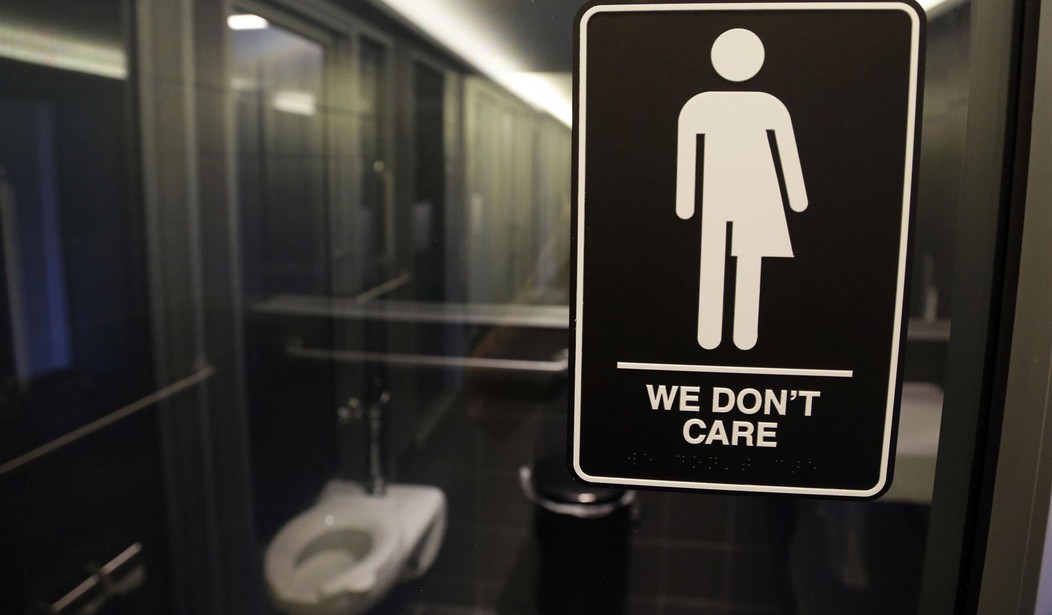A federal court in Virginia handed down a ruling this week that could significantly impact current debates over transgender policy around the country. The case involved a transgender prison inmate who sued the state over being put in the male portion of the prison despite “identifying” as a woman. A lower court ruled against him, but now the 4th U.S. Circuit Court of Appeals in Richmond, Virginia has overturned that decision. (The inmate has not had genital surgery, hence the male pronoun and his placement in the men’s wing of the prison.) The ruling goes much further than simply deciding where the inmate will be housed, however. The court declared that treatment for gender dysphoria is covered under the Americans with Disabilities Act (ADA). This is being seen as a victory by transgender activists who believe that this precedent will block laws barring “gender-affirming care” for minors in many states. But the ruling carries another message that may remind these activists of the old saying about being careful what you wish for. (Associated Press)
A federal ruling that gender dysphoria is covered by the Americans with Disabilities Act could help block conservative political efforts to restrict access to gender-affirming care, advocates and experts say.
A panel of the 4th U.S. Circuit Court of Appeals last week became the first federal appellate court in the country to find that the 1990 landmark federal law protects transgender people who experience anguish and other symptoms as a result of the disparity between their assigned sex and their gender identity.
The ruling could become a powerful tool to challenge legislation restricting access to medical care and other accommodations for transgender people, including employment and government benefits, advocates said.
This ruling isn’t the end of the road for the case in question. Two courts have already disagreed on the outcome and the matter may wind up in the lap of the Supreme Court before this is over. The question of prison assignments might force the Supreme Court to draw a line in the sand when it comes to all of this transgender business. Of course, the case could run into some rocky waters since we already have at least one justice on the bench who has testified under oath that she doesn’t know what a woman is.
With that said, let’s return to the more subtle aspect of this appeals court ruling. We have been repeatedly told (including by some woke activists that have apparently taken over the American Medical Association) that transgender people are simply “born this way” and that their “gender identity” is a reality, separate from their obvious sex that was established at conception. We’ve all heard those explanations, right?
Well, if they’re willing to accept that gender dysphoria (the proper term for the condition) is covered by the Americans with Disabilities Act and its treatment is being recognized, then they are also admitting that transgenderism is a mental illness. And that’s precisely how the medical community saw it historically until very recently. After all, if you’re perfectly “normal” and not mentally ill, you don’t require medical care.
Gender dysphoria was traditionally viewed as a form of psychosis where the patient firmly believed something about themselves that is medically and scientifically impossible. It falls into the same category as Cotard’s Syndrome and clinical lycanthropy. When someone believes they are dead, responsible doctors do not surgically kill them to align their physical reality with their belief. When a patient is convinced they are a werewolf, we don’t go around sewing tails onto them.
The same idea applies to the often heard explanation from activists assuring us that “sex is what’s between your legs. Gender is what’s between your ears.” Okay. Fair enough. But if the problem is between your ears, why are you having surgery between your legs?
In any event, no matter how you view the transgender craze sweeping the nation, you can’t have it both ways. If you want to accept that gender dysphoria falls under the ADA, then those people have a mental illness requiring treatment. If you insist that isn’t the case, then it shouldn’t fall under the ADA. This really shouldn’t be all that complicated for the courts to sort out.







Join the conversation as a VIP Member